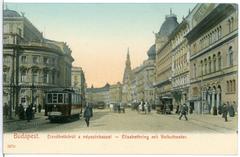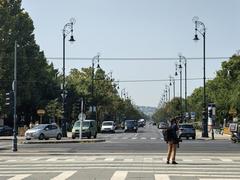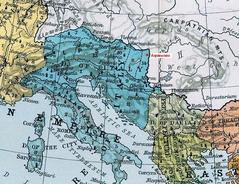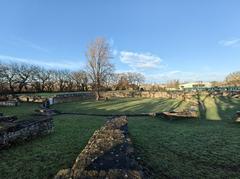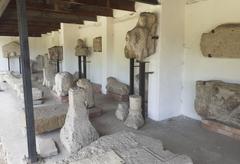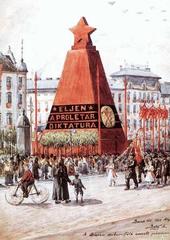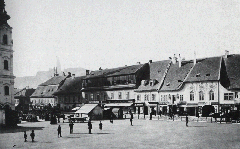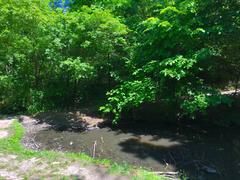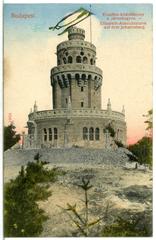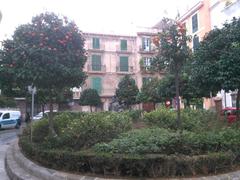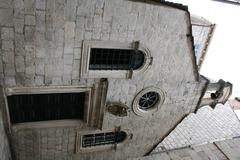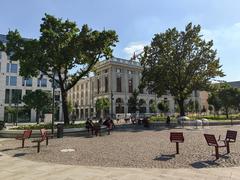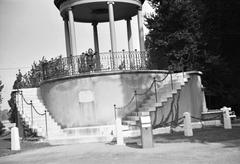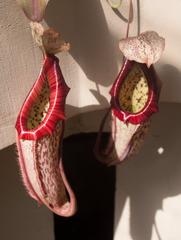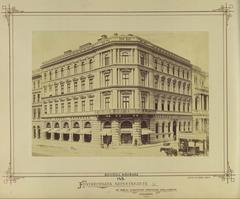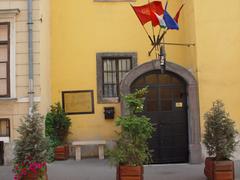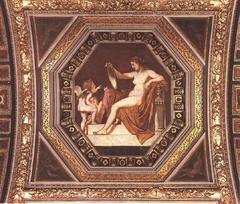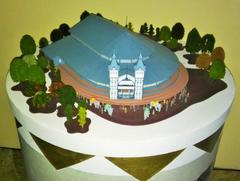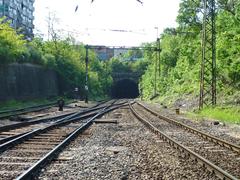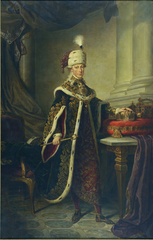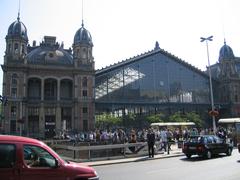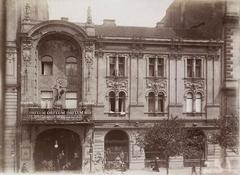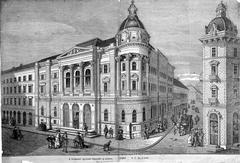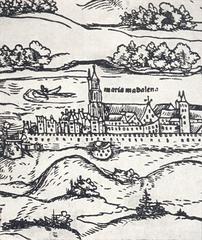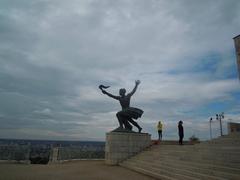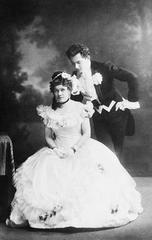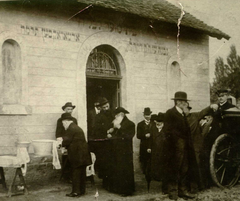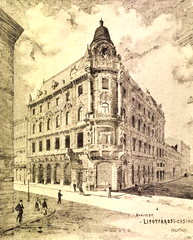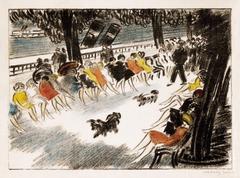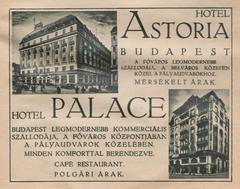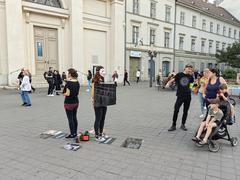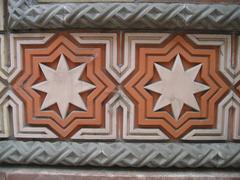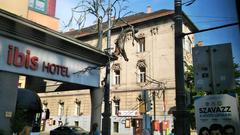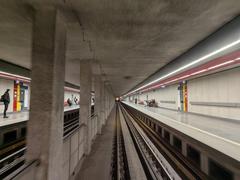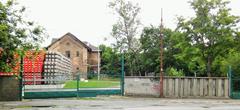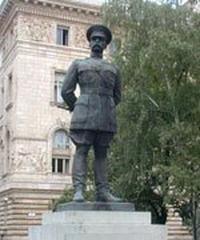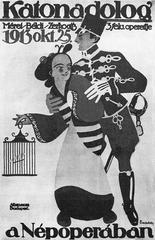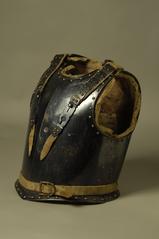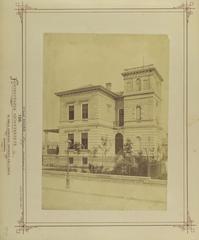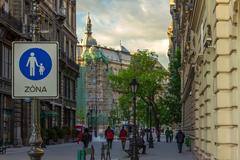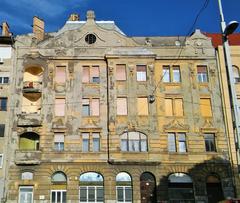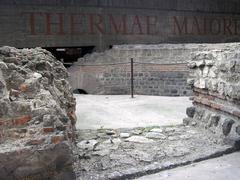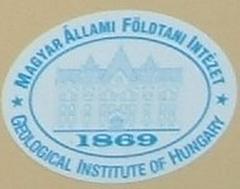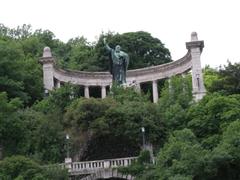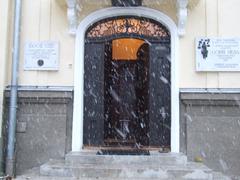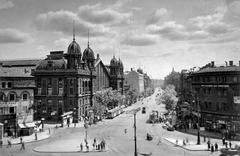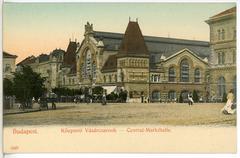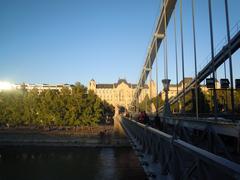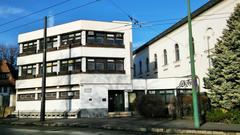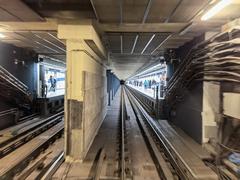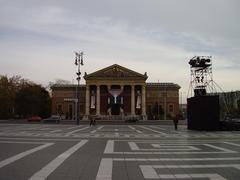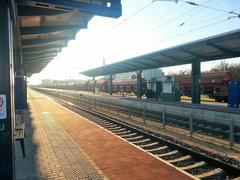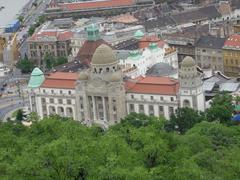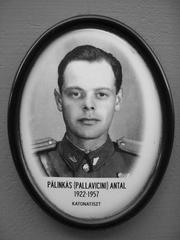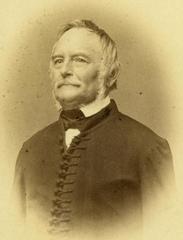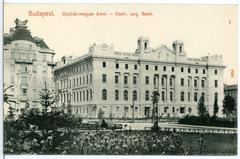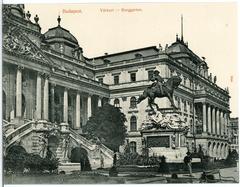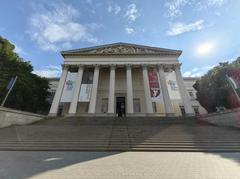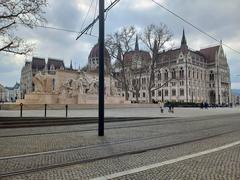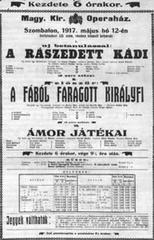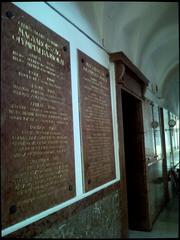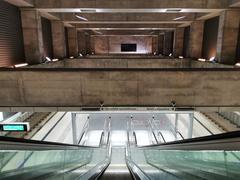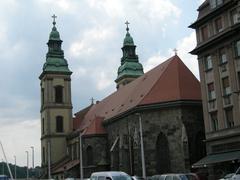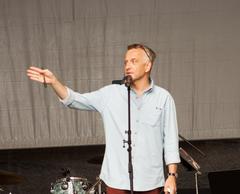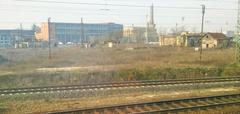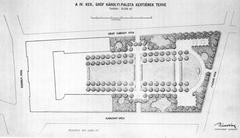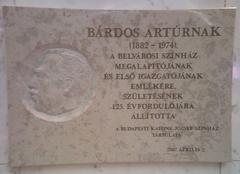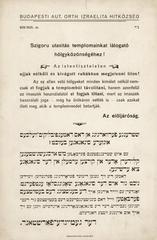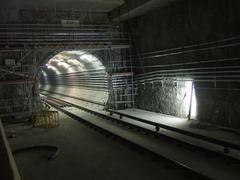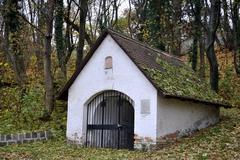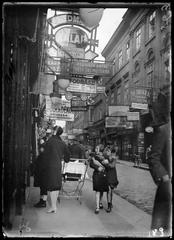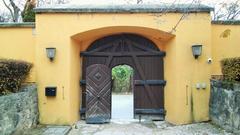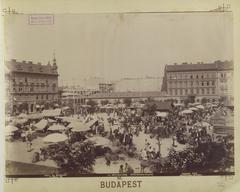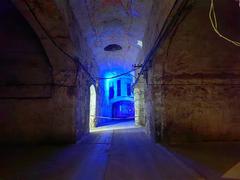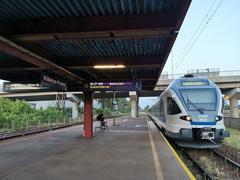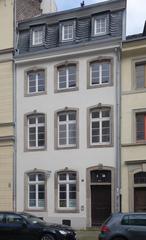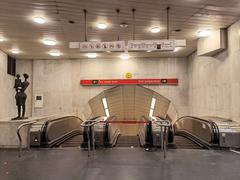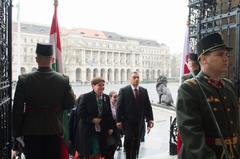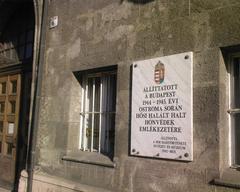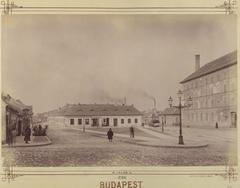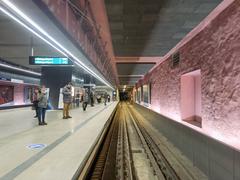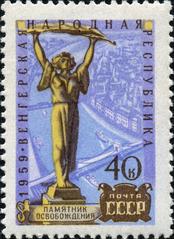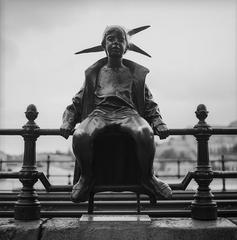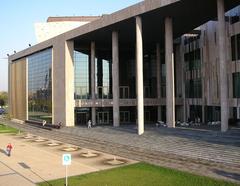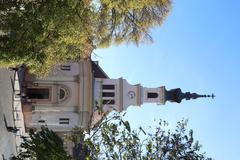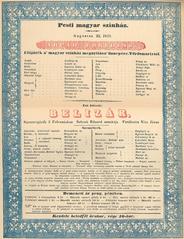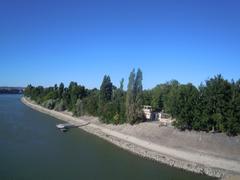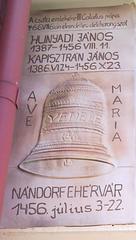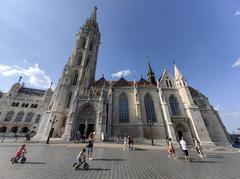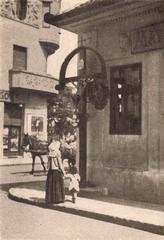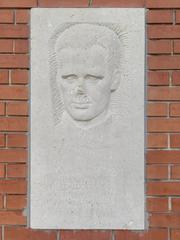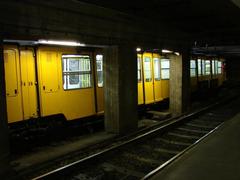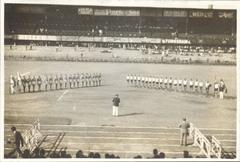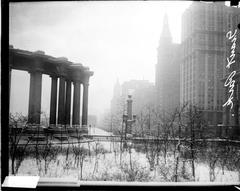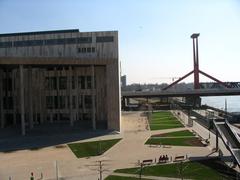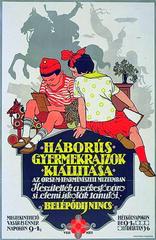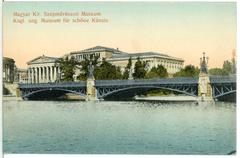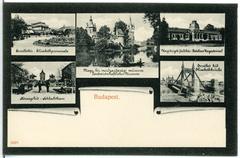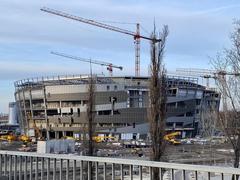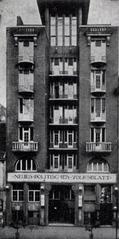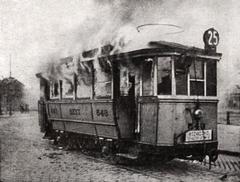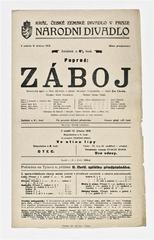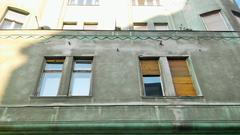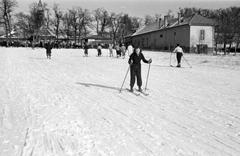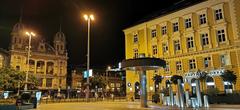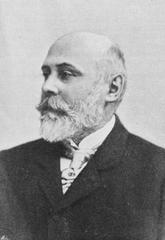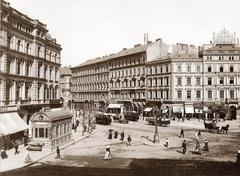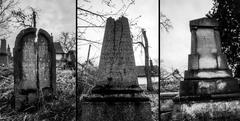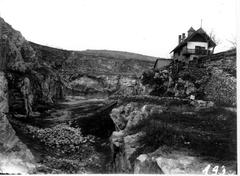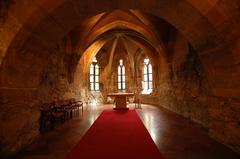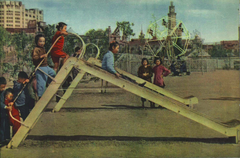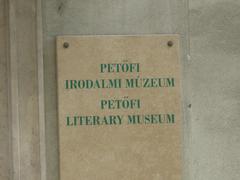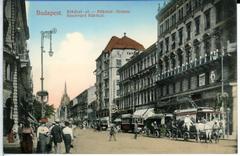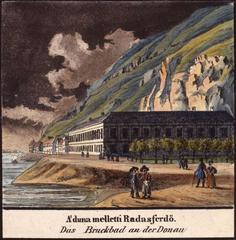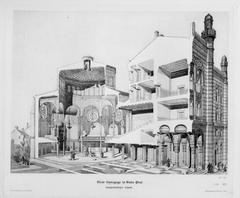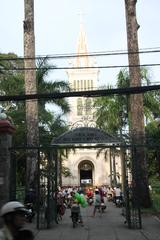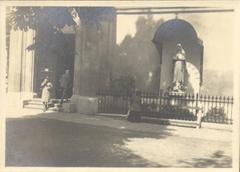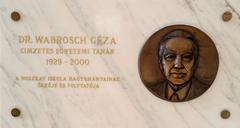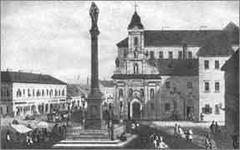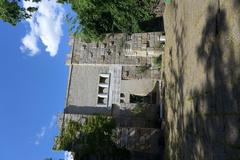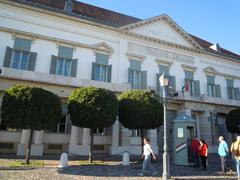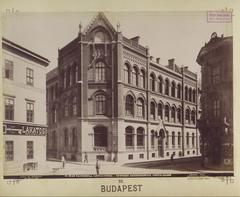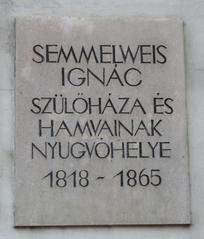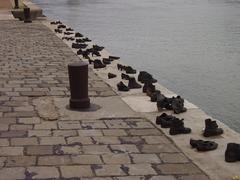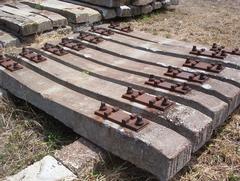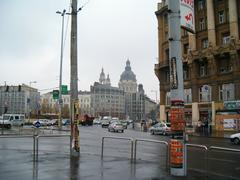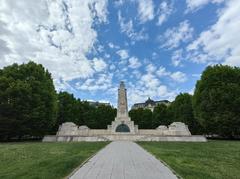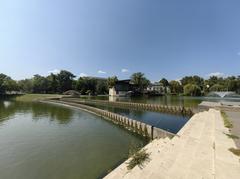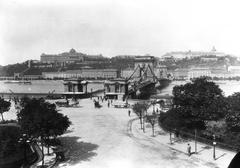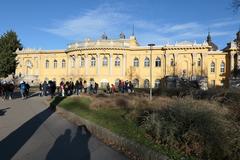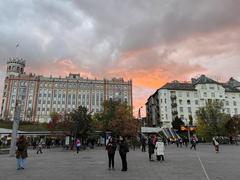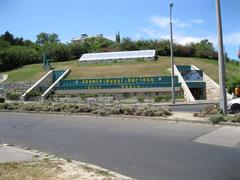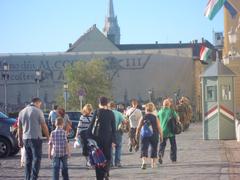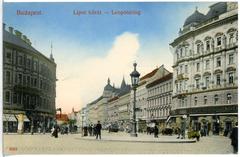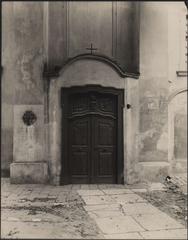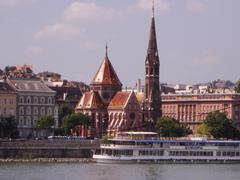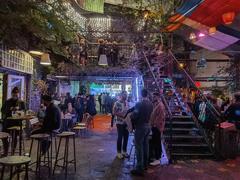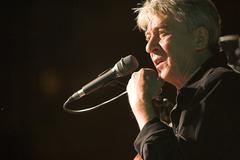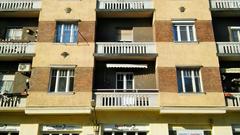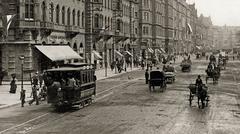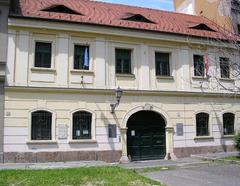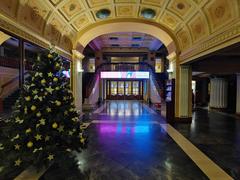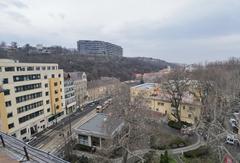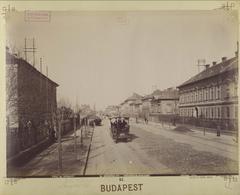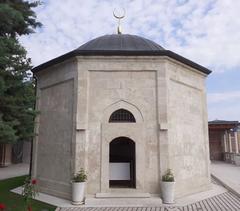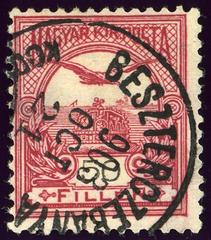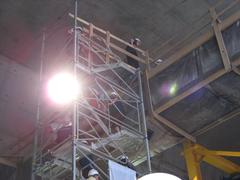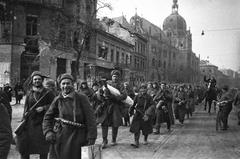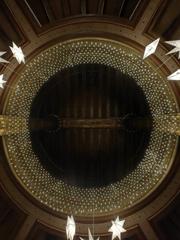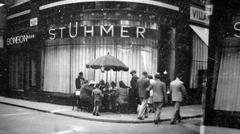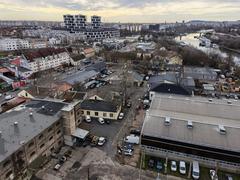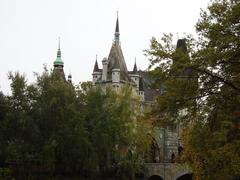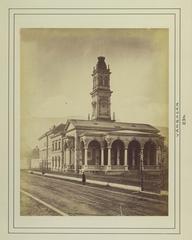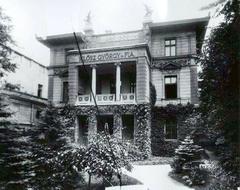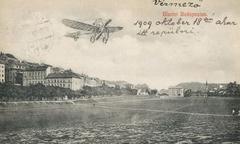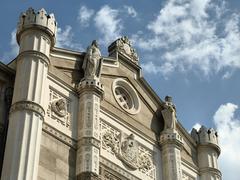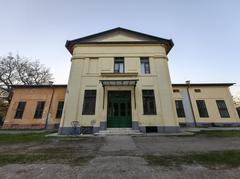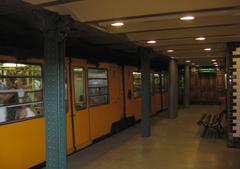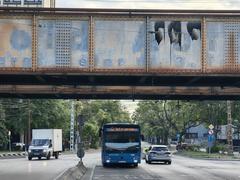Lutheran Theological University Budapest Visiting Guide: Tickets, Hours, and Tips
Date: 03/07/2025
Introduction
The Lutheran Theological University Budapest (Evangélikus Hittudományi Egyetem) is a distinguished academic and historical landmark, deeply intertwined with Hungary’s religious, cultural, and educational history. Founded in 1557 during the Reformation as the Latin School of Sopron, the institution has evolved over nearly five centuries. Today, it serves as Hungary’s premier center for Lutheran theological education and a living testament to resilience through periods of political upheaval, war, and social change. Its campus, located in Budapest’s Zugló district, is both an architectural gem and a hub for ecumenical dialogue, research, and social engagement (Wikipedia; UniPage; Evangelical Lutheran Church in Hungary).
This comprehensive guide covers the university’s historical background, practical visitor information (including hours, tickets, accessibility, and transportation), as well as nearby attractions and essential travel tips. Whether you are a student, scholar, or traveler, the Lutheran Theological University Budapest offers a unique window into Hungary’s Lutheran heritage and vibrant academic life.
Table of Contents
- Introduction
- Historical Background & Significance
- Campus and Facilities
- Visitor Information: Hours, Tickets, and Tours
- Accessibility and Onsite Services
- Getting There and Accommodation
- Dining, Currency, and Practical Tips
- Nearby Attractions
- FAQs
- Summary and Final Tips
- References
Historical Background & Significance
Foundations and Early Evolution
The university’s roots stretch back to the Latin School of Sopron, founded in 1557 amidst the Reformation’s spread through Central Europe (Wikipedia). For centuries, it served as a crucial training ground for Lutheran clergy and scholars, contributing significantly to the cultural and religious development of western Hungary.
In 1892, the school transformed into the Evangelical Lutheran Theological College of Sopron, modernizing its academic programs to keep pace with contemporary theological and educational standards.
Move to Budapest and Modern Growth
A pivotal moment arrived in 1923 when the college became the Faculty of Evangelical Lutheran Theology within the Royal Hungarian Elisabeth University. Post-World War II, the institution relocated to Budapest in 1950 and, by 1951, was reorganized as the Evangelical Lutheran Theological Academy. Despite challenges under socialist rule, the academy maintained its mission, fostering theological education and religious leadership (Wikipedia).
With Hungary’s return to religious freedom, the university adopted its current name and structure in 1998. Today, it offers undergraduate, graduate, and doctoral programs in theology, religious studies, church music, and diaconal work, playing a central role in the training of clergy and church professionals (UniPage; alumninetworkhungary.hu).
Cultural and Social Role
The university is not only an academic institution but also a hub for cultural preservation and social outreach. It is actively involved in the Network of Christian Roma Colleges and operates diaconal establishments serving over 8,000 people, including elderly care, disability services, homelessness support, and substance abuse programs (Evangelical Lutheran Church in Hungary).
Campus and Facilities
The university’s campus at Rózsavölgyi köz 3 (1141 Budapest) harmoniously blends historical architecture with modern amenities (teol.lutheran.hu). Key features include:
- Lutheran Central Collection: Home to the Lutheran Archives, Library, and Central Museum, invaluable for research and cultural exploration.
- Lutheran Central Museum: Notable for the facsimile of Martin Luther’s hand-written Last Will and Testament, among other artifacts.
- Luther Publishing House (LPH): Responsible for religious publications and the church’s media presence.
The campus is a point of interest for both academic and casual visitors, offering insights into Hungary’s religious and educational heritage.
Visitor Information: Hours, Tickets, and Tours
Visiting Hours
- Open to visitors: Monday to Friday, 9:00 AM – 5:00 PM
- It is advisable to check the official website or contact the university for updates, public holiday closures, or special events.
Tickets and Admission
- General admission to the campus and museum is free.
- Guided tours (in Hungarian and English) require advance booking. Contact via [email protected] or by phone at +36 1 4691050 (123university.net).
- Special exhibitions or events may have separate ticketing or require registration.
Guided Tours
- Tours cover the university’s history, architecture, and museum collections. Advance booking is recommended.
- Group visits and tours in English can be arranged with prior notice.
Accessibility and Onsite Services
- The campus is generally wheelchair accessible, with ramps and elevators in key buildings.
- Accessible restrooms and assistance are available; visitors with specific needs should contact the university in advance.
- Visitor information desk and restrooms are on-site.
- Photography is allowed in public areas; restrictions may apply during certain events.
Getting There and Accommodation
Location and Transport
- Address: Rózsavölgyi köz 3, 1141 Budapest, Hungary (Google Maps)
- Public Transport: Easily accessible by tram, bus, and metro. The closest stations are well-connected to central Budapest. Parking is limited; public transport is recommended (Aliz’s Wonderland).
Accommodation
- On-campus dormitory: Single and double rooms (including breakfast) are available for event attendees and conference guests (EFTRE Practical Information).
- Nearby hotels and pensions: Choices range from budget-friendly pensions (e.g., Richter Panzió, Carmen Panzió) to hotels like Lion’s Garden Hotel, Intercity Hotel Budapest, and Novotel Budapest Centrum. Book directly via their official sites (Richter Panzió, Lion’s Garden Hotel, etc.).
Dining, Currency, and Practical Tips
Dining
- Breakfast is provided for dormitory guests.
- Budapest offers a wealth of dining options: try local dishes like goulash, paprikash, and chimney cake at nearby restaurants and cafés (Aliz’s Wonderland).
Currency & Payments
- Official currency: Hungarian forint (HUF). As of July 2025, 1 euro ≈ 320 HUF.
- Cards are widely accepted, but carry some cash for small purchases or markets.
- ATMs are plentiful; always confirm card payment in taxis.
Language
- Hungarian is the main language; English is widely spoken in tourist areas, hotels, and at the university.
- Basic phrases (e.g., “Szia” – Hello; “Köszönöm” – Thank you) are appreciated.
Safety & Utilities
- Budapest is generally safe; standard precautions apply.
- Tap water is safe to drink.
- Power: Type C/F plugs, 230V. Bring a universal adapter if needed.
- Free Wi-Fi is available in most hotels and some public spaces.
Nearby Attractions
Explore Budapest’s rich religious and cultural heritage with these nearby sites:
- St. Stephen’s Basilica: Iconic Catholic landmark (budapest-travel-tips.com)
- Matthias Church: Renowned for Gothic architecture
- Hungarian Parliament Building: Symbol of Budapest (budapestbylocals.com)
- Great Synagogue: Europe’s largest synagogue
- City Park (Városliget): Includes Széchenyi Thermal Bath, Vajdahunyad Castle, and Budapest Zoo
- Heroes’ Square (Hősök tere): UNESCO World Heritage site
Access these sites easily via public transport (Lonely Planet).
FAQs
Q: What are the visiting hours?
A: Monday to Friday, 9:00 AM to 5:00 PM.
Q: Is there an entry fee?
A: Admission is free; guided tours require advance booking.
Q: Are tours available in English?
A: Yes, with prior arrangement.
Q: Is the campus accessible?
A: Yes; ramps and elevators are available. Contact the university for specific needs.
Q: Can I take photos?
A: Yes, in public areas; check for restrictions during events.
Q: How do I get there?
A: The university is well-served by Budapest’s public transport system. Use trams, buses, or metro lines to reach Zugló.
Q: Where can I stay nearby?
A: On-campus dormitory (for event participants) and a range of hotels/pensions in the area.
Summary and Final Tips
A visit to the Lutheran Theological University Budapest is an enriching experience, offering a deep dive into Hungary’s Lutheran heritage, theological scholarship, and architectural beauty. Its free access, welcoming atmosphere, and proximity to major Budapest attractions make it an ideal destination for history buffs, academics, and travelers alike. To make the most of your visit:
- Check visiting hours and book tours in advance.
- Use public transport for convenience.
- Explore nearby historical sites for a broader cultural experience.
- Download the Audiala app for curated guides and updates on Budapest’s events and attractions.
Whether exploring the museum, joining a guided tour, or attending a conference, you will gain valuable insights into Hungary’s religious and cultural fabric.
References
- Lutheran Theological University Budapest, Wikipedia
- Evangelical University of Religious Studies (EHE), UniPage
- Evangelical Lutheran Church in Hungary
- Alumni Network Hungary, Evangelical Lutheran Theological University
- Lutheran Theological University Official Site
- Lonely Planet, Best Things to Do in Budapest
- 123university.net, Evangelical-Lutheran Theological University
- EFTRE 2025 Conference Practical Information
- Budapest Travel Tips
- Budapest by Locals
- Aliz’s Wonderland – Budapest Guide
All external links open in a new tab for your convenience. For images and virtual tours, visit the university’s official website. Alt text examples: “Lutheran Theological University Budapest historic facade,” “Lutheran Central Museum interior,” “Map of Lutheran Theological University and Budapest historical sites.”
